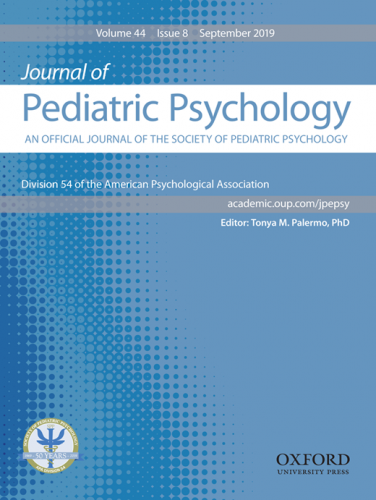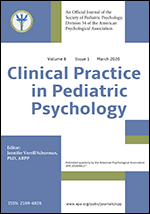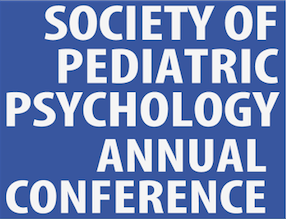Fact Sheet: Pediatric Multiple Sclerosis and Demyelinating Disorder
Multiple sclerosis (MS) is an autoimmune disease affecting the central nervous system (CNS) with a clinical course involving repeated episodes of inflammation, demyelination, and blood-brain barrier breakdown. These episodes result in varied and often unpredictable neurological symptoms including dyspraxia, incontinence, visual changes, fatigue, as well as changes in cognition and mood. Pediatric MS refers to onset of symptoms prior to age 18 years.
Prevalence and Course
A single episode of acute demyelination occurs in approximately one-two per 100,000 children. About 20 percent go on to have a diagnosis of MS (defined as a second demyelinating event involving new areas of the CNS determined by symptoms and/or by MRI). As many as 5 percent of adult MS patients may have had onset in childhood. Most pediatric patients experience a relapsing-remitting course of MS. Major symptoms usually resolve with treatment (steroids and disease modifying drugs). However, many patients continue to experience fatigue, sensitivity to temperature, and other more minor symptoms. There is also increasing evidence that pediatric MS may have subtle but long-term effects on cognition. There is typically less involvement of the spinal cord compared to adult onset MS.
Treatment
According to the National Multiple Sclerosis Society, while MS is not a curable disease, there are a variety of effective strategies to help manage symptoms, modify the disease course, treat relapses or exacerbations, and improve quality of life. Medication treatment can include disease modifying agents that take the form of daily injections, pills, or monthly infusions. Side effects vary in severity. In addition to medication, rehabilitation services and emotional support are critical components of MS treatment. MS is monitored frequently via bloodwork or magnetic resonance imaging (MRI). It is important to note that even with 100% adherence to treatment, relapses can happen
Health and Psychosocial Consequences
Because of the varied symptoms of MS, effects on children are wide-ranging. School achievement, involvement in extracurricular activities and sports may be impacted. Similar to adults with MS, there is an elevated rate of depression, stress and anxiety among pediatric patients, and decreased health related quality of life. Treatment adherence to injections declines in adolescence. While frequencies are wide ranging, 14-73 percent of patients experience fatigue, 0-48 percent experience psychiatric complications, and 0-77 percent experience cognitive impairment (particularly deficits in executive functions, processing speed and language processing).
Evidence-based Assessment
Relevant domains of assessment include physical disability status, cognition, fatigue, pain, academic, social, emotional and family functioning. Study groups are beginning to agree upon common assessments.
- Physical Disability: The Expanded Disability Status Scale (EDSS)
- Cognition and academic functioning: Comprehensive neuropsychological assessment
- Fatigue: Pediatric Multidimensional Fatigue Scale
- Social, emotional and family functioning: Peds-QL, CDI, BASC-2
Culture, Dversity, Demographic and Developmental Factors
Incidences seem to be higher in Northern Europe and North America, lower in Southern Europe and very low in African and Asian countries. There seems to be greater ethnic diversity in pediatric than in adult MS. The incidence of MS is equal in males and females in childhood, but females outnumber males in adolescence.
Evidence-based Interventions
There are few evidence-based psychological interventions for pediatric MS to date. Cognitive rehabilitation can be effective for children experiencing cognitive effects of MS. Empirically supported interventions are used to treat symptoms (e.g. CBT for depression and anxiety). Multidisciplinary care is important.
Patient and Family Resources
Other Demyelinating Diseases
MS is one of several demyelinating diseases. Others include:
- Acute disseminated encephalomyelitis (ADEM) generally appears after a viral illness, or rarely after vaccination. The symptoms of ADEM can resemble an MS attack, although ADEM usually does not recur. There are some recurrent or multiphasic forms of ADEM, which in some cases can be difficult to distinguish from MS. The relationship between ADEM and MS is not well understood, and in approximately 15-20% of cases, patients with ADEM may develop MS later in life.
- Anti-NMDA Receptor Encephalitis is an autoimmune disease where the body creates antibodies against the MNDA receptors in the brain. These receptors disrupt normal brain signaling and cause brain swelling (encephalitis). It can cause a range of physical, cognitive, and psychiatric/behavioral symptoms.
- Optic neuritis is an inflammatory demyelinating attack on the optic nerves. Symptoms can include blurred or loss of vision as well as eye pain. Optic neuritis can occur in MS patients, or can occur in isolation. In some cases, a first attack of optic neuritis may lead to the development of MS later in life.
- Transverse myelitis is an inflammatory demyelinating attack on the spinal cord. Symptoms include back pain, leg weakness and bowel and bladder dysfunction. Transverse myelitis can occur in MS patients, or can occur in isolation. In some cases, a first attack of transverse myelitis may lead to the development of MS later in life.
- Neuromyelitis optica, also known as Devic’s disease, is an autoimmune disorder in which immune system cells and antibodies mistakenly attack and destroy myelin cells in the optic nerves and the spinal cord. The damage to the optic nerves produces swelling and inflammation causes pain and loss of vision; the damage to the spinal cord causes weakness or paralysis in the legs or arms, loss of sensation, and problems with bladder and bowel function. NMO occurs in two different forms: a single attack extending over a month or two, or a more common relapsing form in which the person experiences multiple attacks.
- Myelin-oligodendrocyte-glycoprotein (MOG) antibodies (abs) can be found in the serum in up to one third of all children with almost all forms of demyelinating disorders. The precise role of MOG abs is unclear and research suggests that the integrity of the myelin sheath is affected leading to a transient functional impairment of nerve conduction in the affected areas.
Authors: Ellen H. O’Donnell, PhD & Maria D. Theodorakakis, PhD
Date of last update: November 2019
References
- Chitnis, T., Krupp, L., Yeh, A., Rubin, J., et al. (2011). Pediatric Multiple Sclerosis. Neurologic Clinics 29, 481-505.
- Langer-Gould, A., Zhang, J.L., Chung, J., Yeung, Y., Waubant, E., Yao, J. (2011). Incidence of acquired CNS demyelinating syndromes in a multiethnic cohort of children. Neurology 77, 1143-1148.
- Mowry, E.M., Julian, L.J., Im-Wang, S., Chabas, D., Galvin, A.J., Strober, J.B., Waubant, E. (2010). Health-related quality of life is reduced in early pediatric multiple sclerosis. Pediatric Neurology 43, 97-102.
- Portaccio, E., Goretti, B., Zipoli, V., et al. (2010). Cognitive rehabilitation in children and adolescents with multiple sclerosis. Neurological Sciences 31(2), 275-278.
- Thannhauser, J., Mah, J., & Metz, L. (2009). Adherence of adolescents to multiple sclerosis disease-modifying therapy. Pediatric Neurology 41, 119-123.



